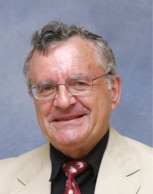You are currently browsing the tag archive for the ‘words’ tag.
Ruth Bader Ginsburg – Words Matter
By Shlomo Maital
Ruth Bader Ginsburg in Israel
Do words really matter?
They do indeed. Especially when written by a diminutive Jewish woman, a Justice of the US Supreme Court for an entire generation.
Ruth Bader Ginsburg said this, about her class with famous Russian novelist Vladimir Nabokov, at Cornell University: (from a blog by Frances Katz):
“[Vladimir] Nabokov, changed the way I read and the way I write,” Ginsburg said. “Words could paint pictures, I learned from him. Choosing the right word, and the right word order, he illustrated, could make an enormous difference in conveying an image or an idea.”
She also says she always employs several of the lessons she learned in his class: “I seek the right word and word order,” she explained. “ And I use the ‘read aloud’ test to check whether I have succeeded.”
Rulings and dissenting opinions are first read aloud in court before being distributed to the public, so the ‘read aloud test’ helps her be certain the language be clear enough to articulate legal arguments but still be understood by ordinary citizens.
Her use of language is clear and direct. She redefines the issue and makes her argument. She calls on those who agree with her to push for change. She did not call on Congress directly, use inflammatory language or rhetorical flourishes. She chose her words carefully to make sure there was no misunderstanding her call for action.
One of her law clerks said yesterday on National Public Radio, that he worked hard on a legal opinion, and wrote 10 pithy pages. RBG complimented him, then took his draft and boiled it down to 3 and one half even more pithy pages, focused clear and powerful.
Words to matter. RBG’s words changed America and the world. She used the phrase “gender discrimination”, not “sex discrimination”, because the latter phrase, she knew, would not speak to the male Justices.
You CAN change the world, with the right words. And with stubborn persistence, and with, as she put it, the ability to “disagree without being disagreeable”.
Words Do Matter! Start Your Startup With A Story
By Shlomo Maital
Three on-line courses are currently ‘live’ on Coursera, that I and my Technion colleagues created, on startup entrepreneurship. I’m greatly enjoying the discussion forums. My student Antoni Baszczeski has drawn my attention to a framework by Chris Plachy, offered on Coursera:
The discussion hinges on the importance of words. Antoni quoted G B Shaw, a great writer, who won the Nobel Prize for Literature in 1925, for his “idealism and humanity, his stimulating satire…” I noted to Antoni that Shaw was a great creator, but in the end created just words. Antoni responded that words come between feelings and action, and perhaps spur action. And I certainly agreed.
I’m currently developing a startup entrepreneurship module based on ‘narrative entrepreneurship’. The idea is simple. Entrepreneur: Build your story! Shape your story (events, timeline, conflict, people, characters, things, challenges, ups and downs), built around your startup, and how you create it…tell your story in past tense, even though it unfolds in the future. Use your story to inspire others, and yourself, to aspire to greatness, and as a roadmap. Use all the powerful techniques of great fiction to shape it…and then make it come true.
This, by the way, has strong foundations in cognitive psychology, developed by the late Jerome Bruner (see my blog on his narrative approach). We understand reality through stories. Perhaps, then, we can SHAPE reality by creating stories…and then living them. The better the story, the closer you get to effective successful action!
Perhaps, as Antoni notes, words are indeed a powerful bridge between feelings (the passion that drives startups) and the deeds and actions that make them happen.
Thanks, Antoni!



